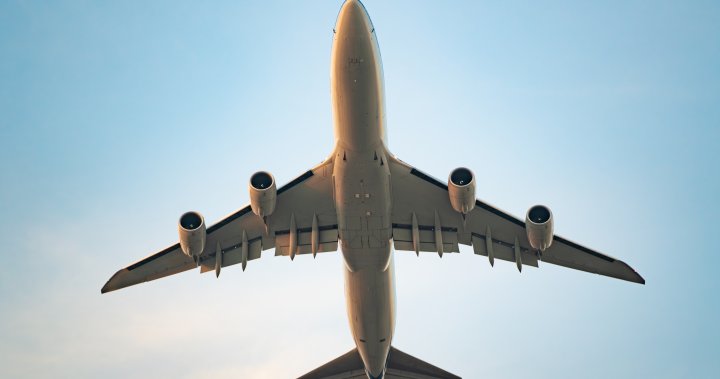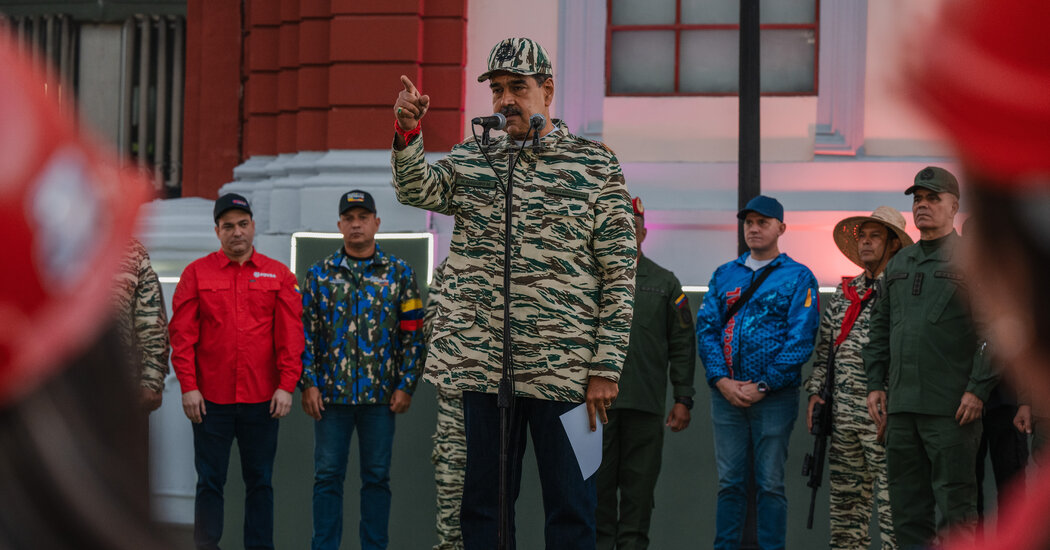The Trump Organization on Friday issued a new ethics agreement that it said would govern how the family and President-elect Donald J. Trump would conduct themselves over the next four years to try to avoid conflicts of interest, even though the president is legally exempt from federal conflict of interest laws.
The measures described in the document largely echo pledges the family made eight years ago, when Mr. Trump first became president. They include appointing an outside ethics lawyer to review major family business transactions worth more than $10 million, keeping assets Mr. Trump owns in a trust and limiting his access to detailed financial information about the company.
But the Trump family is not pledging to halt any new international real estate deals, unlike eight years ago. Instead, it is agreeing only to “no new transactions with foreign governments,” reflecting a plan that was first shared with The New York Times in December.
“We are going above and beyond,” Eric Trump said in an interview with The Times on Friday.
Ethics lawyers immediately dismissed the moves as insufficient, citing as an example that the Trump family separately disclosed just this week that it would host a golf tournament in April at its Trump National Doral resort in Miami. The tournament is sponsored by LIV Golf, the new league created and financed by the Saudi government. The deal will generate hundreds of thousands of dollars in revenue.
“If the president receives any profits or benefits from foreign governments — not just new deals — then he is in violation of the Constitution,” said Richard W. Painter, a former White House ethics lawyer during the George W. Bush administration, who has been a longtime critic of Mr. Trump’s handling of ethics issues. “The money flow has to stop on Jan. 20.”
The ethics pledge included an announcement that William A. Burck, a prominent ethics lawyer at Quinn Emanuel Urquhart & Sullivan, would serve as the outside lawyer for the family company. He will review any property acquisitions or sales worth more than $10 million, major leases on buildings owned by the Trump family, new loans or even loan refinancing deals, as well as any transactions with federal or state governments, or claims against foreign governments.
“It is an honor and privilege to work with such a great company during this unprecedented and pivotal chapter in its distinguished and storied history,” Mr. Burck said in a statement on Friday.
Mr. Burck is a former federal prosecutor and White House lawyer during the George W. Bush administration. He is a well-respected and well-known figure in Washington, even among Mr. Trump’s critics.
He has previous involvement with legal matters related to Mr. Trump: He represented a number of witnesses in the special counsel investigation into Russian interference in the 2016 election, such as the former Trump White House aides Stephen K. Bannon and Reince Priebus.
Mr. Burck also interviewed to represent Mr. Trump in the criminal case accusing him of improperly taking classified documents after he left office in 2020. But Mr. Burck ultimately declined to join the team.
The ethics agreement also calls for the Trump family to donate profits collected from smaller transactions with foreign government entities, such as stays at Trump-owned hotels or resorts by a diplomat or delegation from another government, a step that the family also took during the first administration.
Mr. Trump, according to the pledge, will receive “general business updates,” but he will not have access to detailed financial information. He “will have no involvement in the management of the company,” including “no role in any of the day-to-day decision making.”
The Trump family has also promised to provide members of the Secret Service and other government agencies discounted rates for rooms at its clubs and hotels when they stay to help protect the president-elect or his family.
More than a million dollars in such bills accumulated during Mr. Trump’s first term, generating intense public attention. They led to accusations that the Trump family was overcharging the federal government, which the family disputed.
Norman L. Eisen, who was an ethics lawyer in the Obama White House, called the new agreement insufficient, as Mr. Trump would still be able to use his position in the White House to drive business to his family hotels, golf courses and private club at Mar-a-Lago, among other venues. The family can also still rely on his power to help generate new real-estate deals.
“These kinds of self-imposed limitations were meaningless in the first Trump administration and will be no more effective in the second one,” said Mr. Eisen, who created an organization called State Democracy Defenders Fund to track ethics and legal issues in the new administration.
The agreement does not address potential ethics questions that could emerge as a result of the Trump family’s relationship with World Liberty Financial — a cryptocurrency company that it helped start — at the same time that Mr. Trump will be naming the new chairman of the Securities and Exchange Commission, which regulates cryptocurrency.
The agreement also does not address potential conflicts that could emerge as a result of Mr. Trump’s majority ownership stake in Truth Social, the social media platform he created after leaving the White House. Mr. Trump has used the platform to make dozens of official announcements on cabinet picks and other actions as president-elect. Truth Social is a publicly traded company, meaning anyone can buy stock in it and perhaps even try to drive up the stock price, benefiting Mr. Trump and his family.
During Mr. Trump’s second term, his family also intends to continue to sign new real estate deals with partners across the world. It has done so in recent months for branded hotels and golf resorts in Dubai, Vietnam and Saudi Arabia, which will generate millions of dollars for the family.
The Trump family has also in recent weeks had discussions with the companies that control the debt on the former Trump International Hotel in Washington, which operates out of a federally owned building and is now branded as the Waldorf Astoria.
The lease on this building was sold by the Trump family in 2022, but the buyers have since defaulted on the loan. The discussions about potentially buying back control of the hotel are at a very preliminary stage, one executive involved in the matter said, speaking on condition of anonymity because of the informality of the conversations.
It remains unclear if such a deal might ever materialize. This hotel served as a gathering place during the first Trump administration for lobbyists and backers of Mr. Trump, as well as foreign diplomats visiting Washington. Any move to take back control could generate more questions about conflicts.
The president and the vice president are the only executive branch officials who are exempt from a conflict of interest law that requires federal officials to divest of any holdings that could benefit from actions they take, or to recuse themselves from actions that could result in profits to themselves or their families.
But the president is still subject to the so-called emoluments clause of the Constitution, which prohibits federal officials from accepting anything of value from a foreign government source. That clause led to lawsuits that were filed during the first Trump administration but were dismissed as moot when Mr. Trump left office, as they were never resolved.
Maggie Haberman contributed reporting.
Trump, Donald J,Trump Organization,Conflicts of Interest,United States Politics and Government,Presidential Transition (US),Quinn Emanuel Urquhart & Sullivan,Burck, William A
#Trump #Organization #Issues #Ethics #Pledge #PresidentElects #Term



